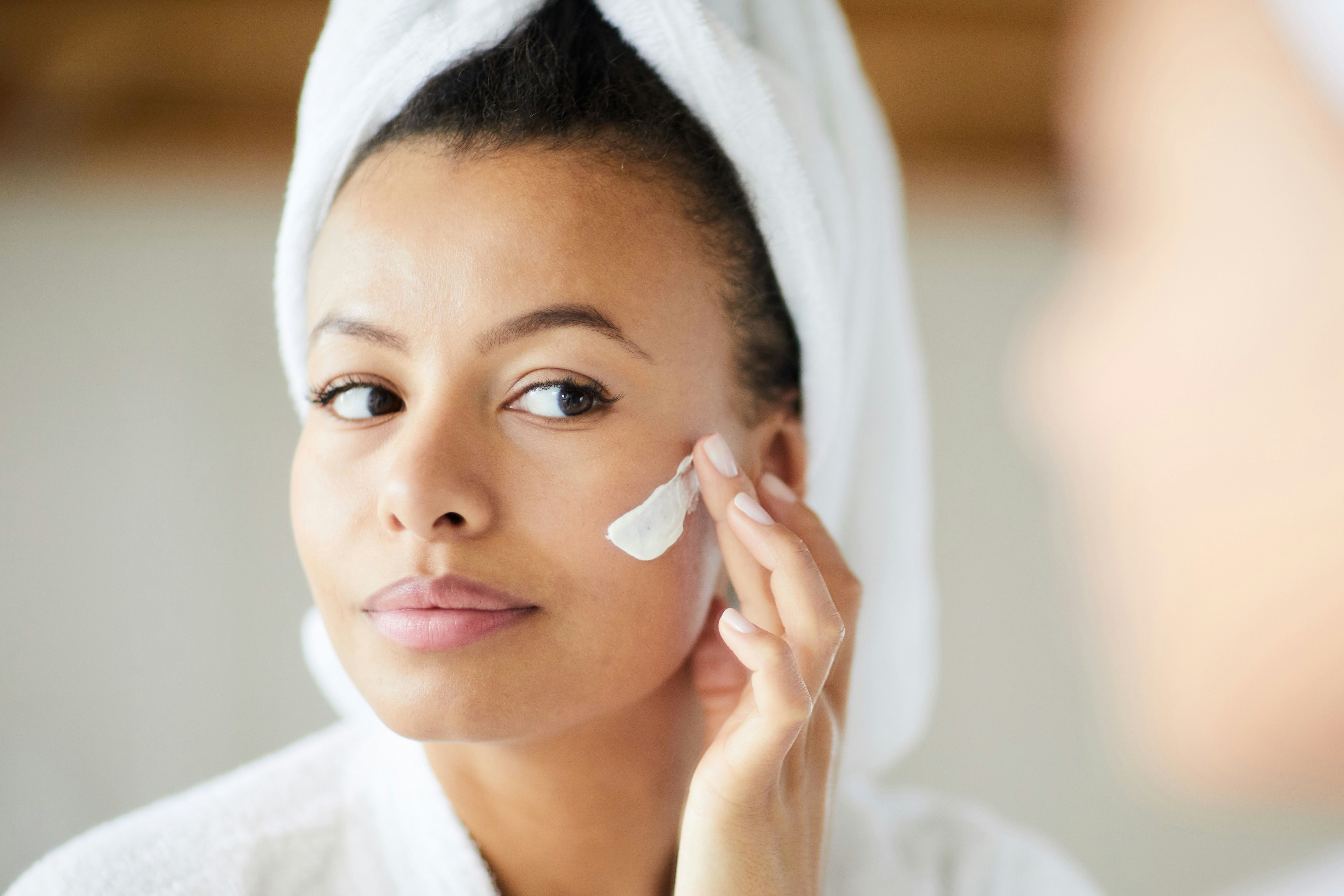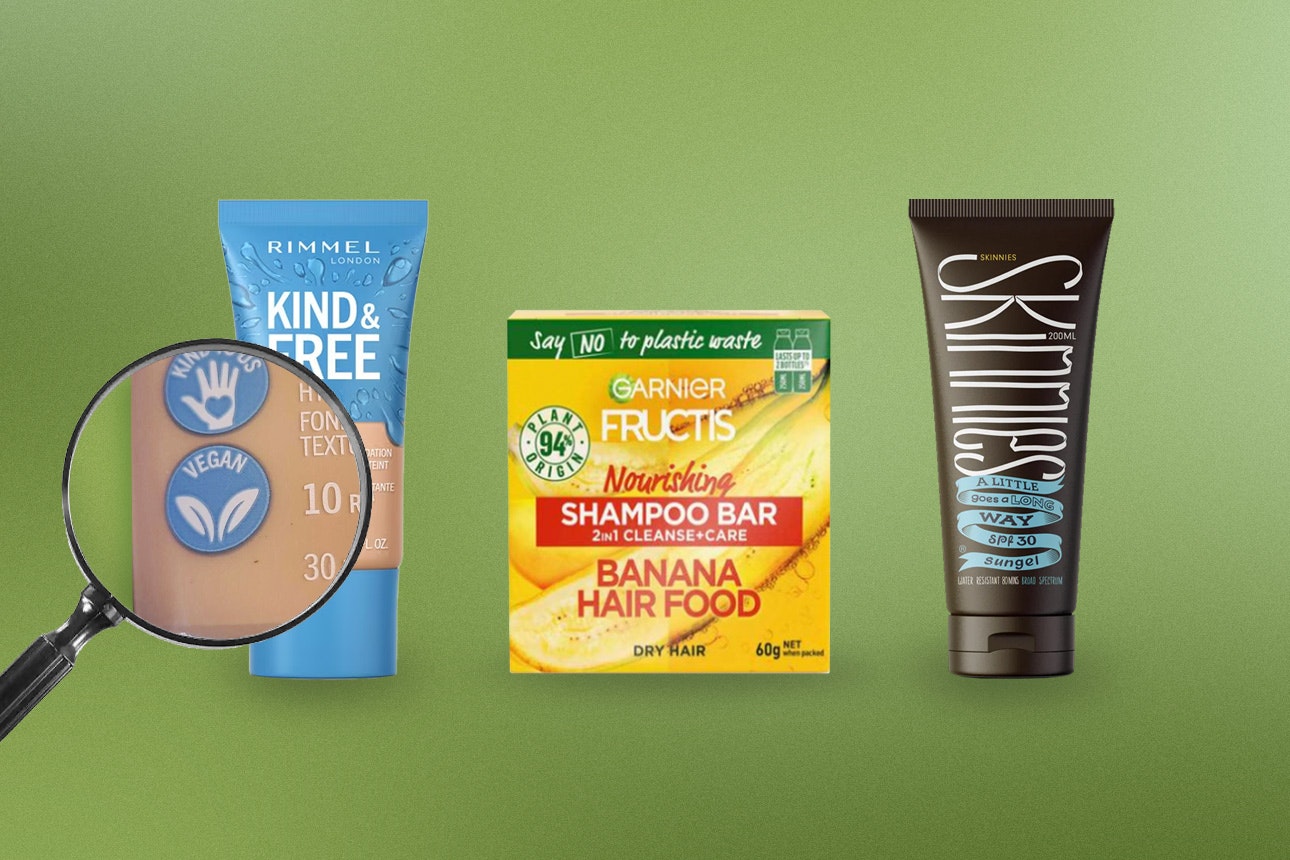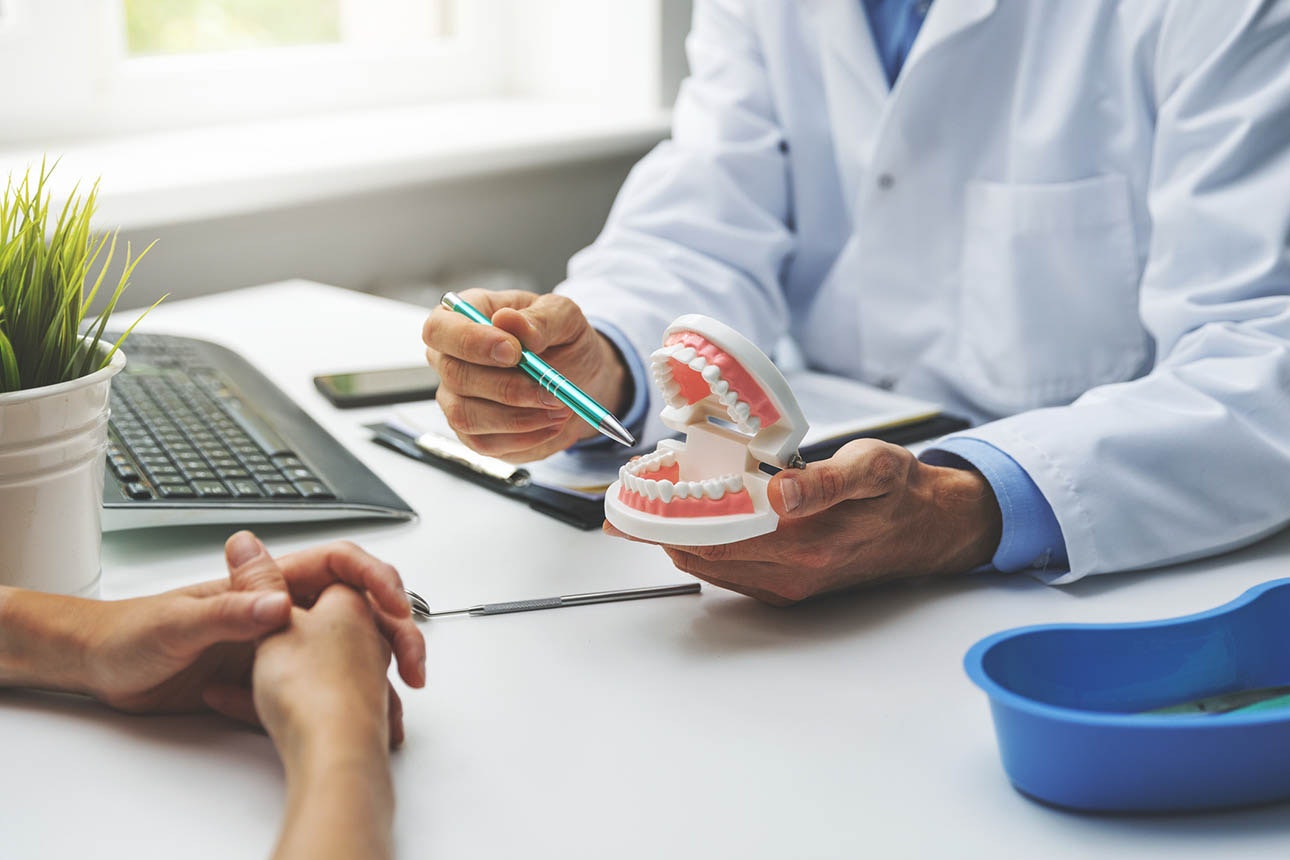
By Vanessa Pratley
Investigative Journalist | Kaipūrongo Whakatewhatewha
Tilly* spent the summers of her youth in central Otago, sunbathing on hot tin roofs. Slathered in oil, there was nothing better than a good tan. Tilly says that back in the 70s and 80s, the use of sunscreens wasn’t so widespread. There wasn’t any slip, slop, slap and wrap in the little valley where she grew up.
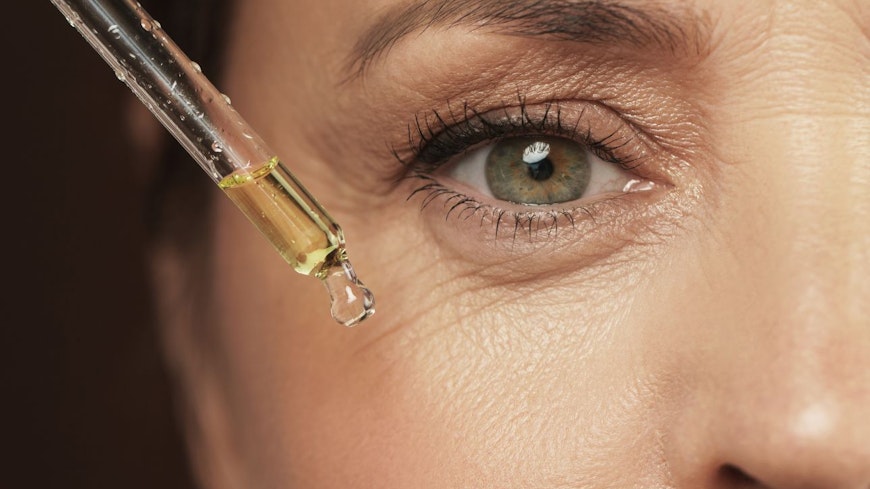
Over the years, Tilly’s skin started changing. More sunspots, more melasma, deeper wrinkles, and even three or four melanoma. She decided it was time to start taking care of her skin.
“I noticed the damage that I had done over my entire lifetime of being outside, not wearing sunblock or moisturising, just using soap.”
She started off using sunscreen every day, then moved to more overt skincare. Serums, oils, and cremes became part of her daily routine.
Soon, Tilly came across something on her Instagram. It was called retinol, a trending skincare ingredient that claimed to increase skin cell turnover, reduce wrinkles and diminish the signs of ageing.
“I see this stuff on social media, advertised everywhere … so I thought ‘I’ll give it a go’.”
She picked up a bottle of L’Oréal RevitaLift Laser from Chemist Warehouse. She tells me it must have been around $60 and on special, otherwise she wouldn’t have bought it.
Tilly isn’t sure what a retinol is, exactly. Most consumers aren’t likely to know, she says. She does know how to use it, though, and can recite the directions from memory.
“Three or four drops at night, to clean dry skin. You start with doing it like twice a week, and then every third day, and then you slowly increase it to every night.”
Before applying the serum, she uses the matching face wash. She also applies the night cream, and the under-eye serum. They’re all part of L’Oréal’s RevitaLift programme. Tilly says she probably paid $150 for the additional products, again, on special.
Each of the products, except the face wash, contains retinol. L’Oréal’s staggered approach to introducing the chemical is because it can damage the skin if not applied correctly.
“In the first few weeks I did experience redness, and a little tiny bit of peeling, but not a great deal.” Tilly’s biggest concern was the increased potential for sun damage. Retinols can heighten your skin’s photosensitivity, increasing the risk of sun sensitivity and damage. Tilly uses a sunscreen to combat this.
L’Oréal says the serum can reduce 100% of wrinkles, even deep ones, for 100% of women. But after 6 months of daily use of all of the products in the RevitaLift suite, Tilly hasn’t noticed any change.
I ask Tilly about L’Oréal’s claim that 100% of women noticed an improvement in their skin. Was it fair to say that it didn’t work for her?
“I think it’s a marketing ploy … and it got me hook, line and sinker ... it hasn’t done what I expected it to do.”
A look at brands' claims
Retinols stimulate skin cell turnover to improve skin texture and tone, and can be used to effectively treat problems like acne, severe acne, melasma, scarring and sun damage. Your GP can prescribe oral or topical retinols, but these are much stronger than the products available over the counter.
Over-the-counter retinols are topical, rather than oral, and are gentler on the skin. However, their lower concentrations might mean results take longer to appear. Over-the-counter retinols are also more accessible than seeking a prescription from your doctor, with most people able to get their hands on a serum.
But with so many pretty bottles lining the shelves in the skincare aisle, what exactly makes an over-the-counter retinol stand out from the crowd? For Consumer, it was claims of clinical trials and studies that put L’Oréal, Olay and Neutrogena ahead of the bunch. After hearing Tilly’s story, we wanted to see if any of the claims made on these bottles could be substantiated.
Under the Fair Trading Act, it is illegal to make an unsubstantiated representation about a product.
Prices were taken from Chemist Warehouse NZ’s website and are correct as of November 2024.
L’Oréal RevitaLift Laser X3 Pure Retinol Night Serum ($29.69)
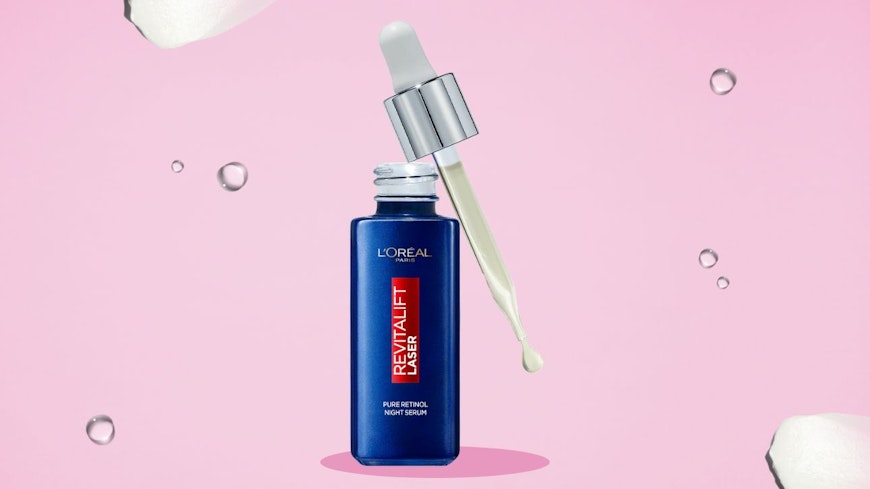
Claims: “Visibly reduces 100% of wrinkles, even deep ones for 100% of women,” based on a cosmeto-clinical study on 49 women which scored face wrinkles at 4 months; “validated with dermatologists”.
We asked L’Oréal if it had any evidence to back-up its claims, if it could provide a copy of that evidence, and what “validated with dermatologists” meant.
We also asked if there was a reason why the product didn’t work for Tilly. L’Oréal did not respond to requests for comment.
Verdict: L’Oréal didn’t back up its claims or respond to our other questions. Tilly is still using the serum.
OLAY Regenerist Retinol24 Night Serum ($54.99)
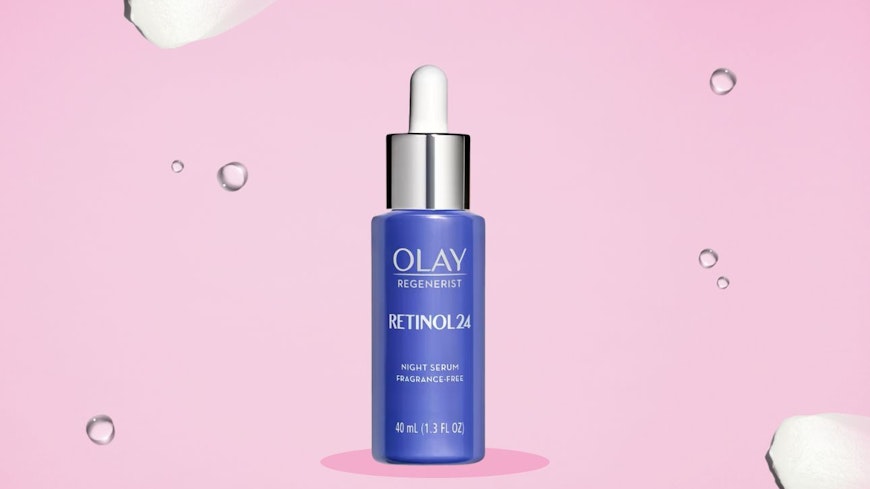
Claim: “Scientifically proven to reduce fine lines and wrinkles in 28 days.”
We asked Olay if it had any substantiating evidence for its claims and if it could provide a copy. We also asked why the advertising used to market the serum mentioned a study with 156 women that related to a different product.
A spokesperson for Olay said, “We would like to decline to provide the information requested as many of our claims data and support are not for sharing with broader public. The support contains private consumer data and proprietary information, therefore external access is controlled to a minimum necessary level.”
Olay did not respond to our query about its marketing and did not respond to further requests for information.
Verdict: Olay said it had evidence to back up its claims but declined to share it with us. It also declined to comment on our concerns about its marketing.
Neutrogena Rapid Wrinkle Repair Retinol Serum ($28.19)
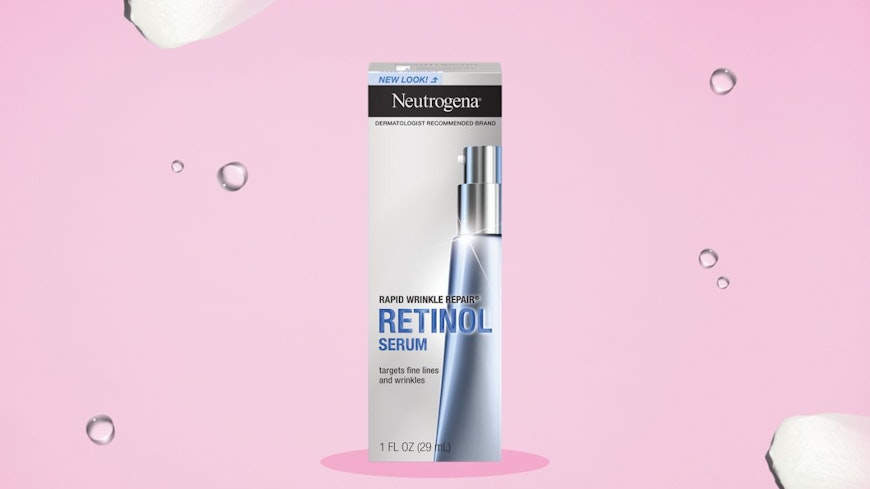
Claim: “Fights the signs of aging, with visible results in just 1 week,” “younger looking skin in just 1 week”.
We asked Neutrogena if it had any substantiating evidence for its claims.
A spokesperson for Neutrogena said “The ‘visible results in just 1 week’ and ‘younger looking skin in just 1 week’ claims in relation to the Neutrogena Rapid Wrinkle Repair Serum are supported by a double-blind, randomized, benchmark controlled clinical trial. The trial included a dermatologist-led evaluation to determine efficacy through clinical grading and self-assessments. Our formulation follows strict ingredient guidelines and has undergone rigorous safety and efficacy processes.
“At Neutrogena, we have 30 years retinol expertise with 20+ patents, 100+ clinical studies and 4000+ consumers tested to improve efficacy, tolerance, and aesthetics.”
Verdict: Neutrogena said it had evidence to back up its claims but wouldn’t share it with us.
Retinol Q&A
Registered dermatologist Dr Louise Reich answers our questions about retinol and retinol serums.
What is a retinol?
A retinol is a product derived from vitamin A. Retinoids help to clear blocked grease pores (acne), reverse features of photo-ageing (e.g. solar acne, irregular skin scale, blotchy pigmentation) and stimulate collagen and elastin.
How should I use one safely?
Apply sparingly at night and use a suitable broad spectrum SPF 50+ sunscreen each morning.
Is a retinol for everyone?
No. Many people with sensitive and dry-prone skin find retinols irritating as they tend to dry out the skin and can aggravate eczema. They should be avoided during pregnancy.
Should young people use a retinol?
Not routinely, but for mild to moderate acne control if required.
Is it a replacement for cosmetic procedures like botox?
Depending on what the cosmetic skin issue is, it may be.
What’s the difference between an over-the-counter retinol and one prescribed by a doctor?
Typically, the concentration, which will likely determine the degree and speed of effectiveness. A doctor experienced in skin and/or cosmetic skin issues, will also advise about suitability for use of retinoids or not.
Dr Reich’s tips to slow skin ageing
There are a range of factors that can contribute to slowing skin ageing. Dr Reich says the most important steps you can take include prioritising sun protection, avoiding smoking and reducing your consumption of alcohol.
She also says we should keep in mind that sometimes ageing is out of our control. “Genetics has a big influence but there is currently no way to change that!”
Cover up with high UPF (ultraviolet protection factor) 50+ clothing, wear a broad brimmed hat, wraparound sunglasses and apply broad spectrum SPF 50+ sunscreen to areas of skin not already covered, all year around.
Regularly moisturise dry skin. It will reduce a dry, scaly, or wrinkled appearance. Apply moisturiser to skin in the evenings. Oil-prone skin may not require moisturiser.
Get 8 hours of sleep each night.
Consume a diet rich in fresh vegetables and fruit (aiming for 8 to 10 servings a day).
Topical vitamin A (retinol) can slowly reverse photodamage to the skin in combination with holistic and fastidious sun-protection measures.
*Name changed to protect privacy

Why are natural health products so popular?
We asked consumers who take natural health products such as vitamins, what they take and why they take them.
